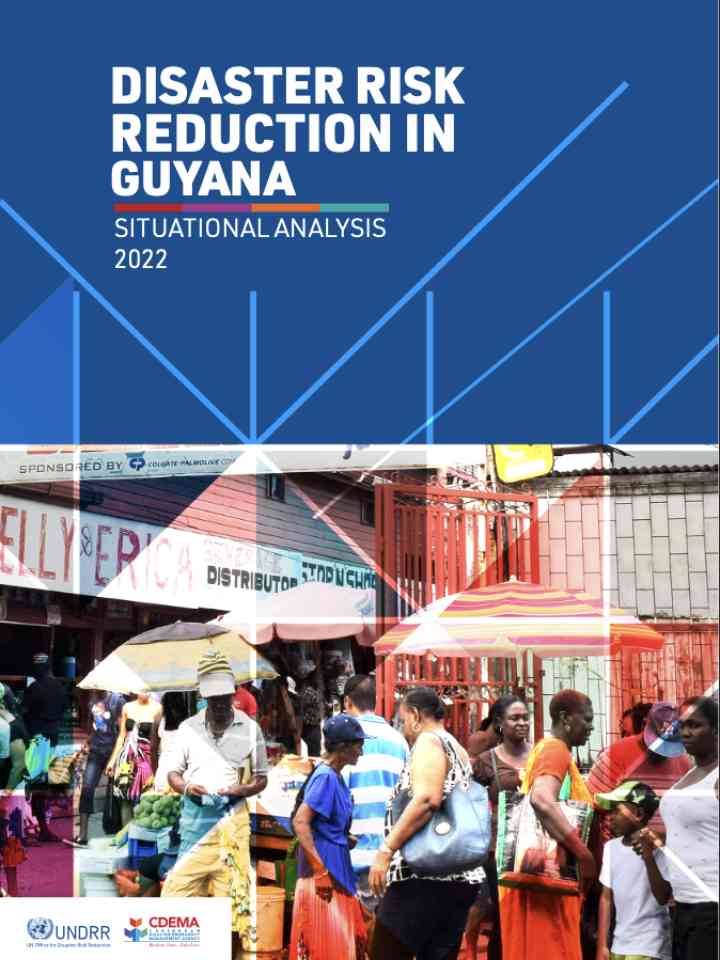Disaster risk reduction in Guyana: Situational analysis 2022
This study seeks to inform the implementation of the Country Work Programme for Guyana, as well as the design and revisions of other critical national instruments, including the National Adaptation Plan, National Development Strategy, sectoral policies, strategies and plans, and other supporting national instruments for implementation of the 2030 Agenda. To this end, the elements of hazards, exposures, vulnerabilities and capacities are examined to determine areas for strengthening in support of systemic risk governance.
The publication provides a risk profile of Guyana and provides the following takeaways:
- While floods, droughts and environmental hazards are most prevalent within the national risk profile, the risk environment is expanding.
- There remain key areas for strengthening across the national planning environment. These include resource investments for disaster risk management, planning and inclusion of vulnerable groups, availability of consolidated risk data for evidenced-based actions, planning for recovery, mainstreaming and overall policy coherence.
- Recent oil and gas discoveries and extraction activities though with their economic benefits, expands the country's risk profile. Consequently, deliberate efforts are required to comprehensively and systemically address the evolving nature of risk so as to sustain the path to sustainable development
